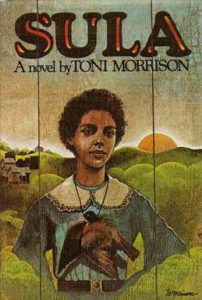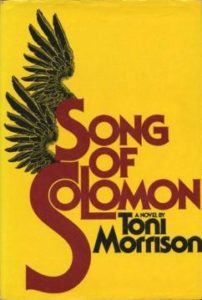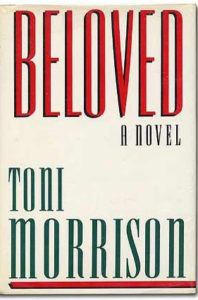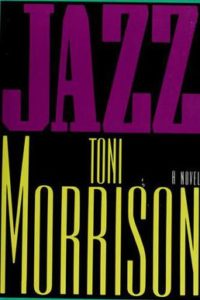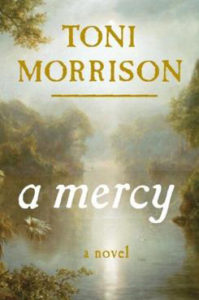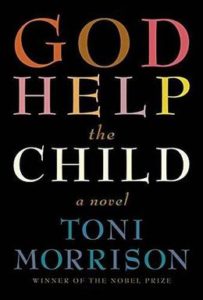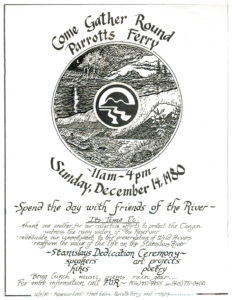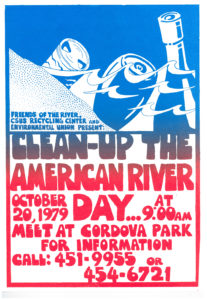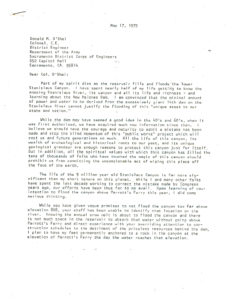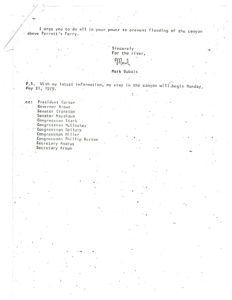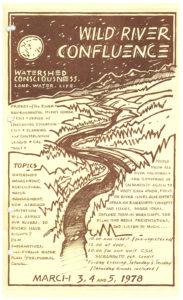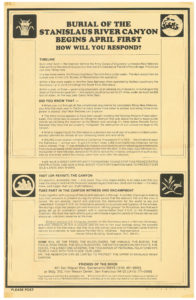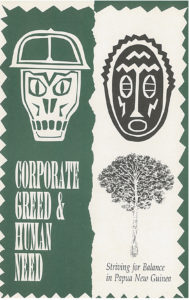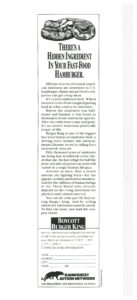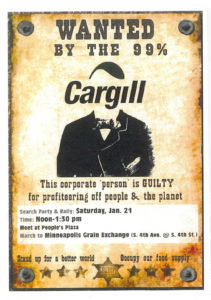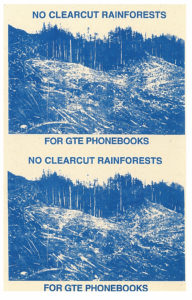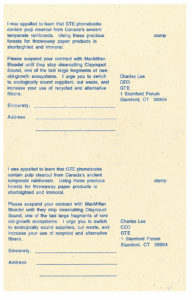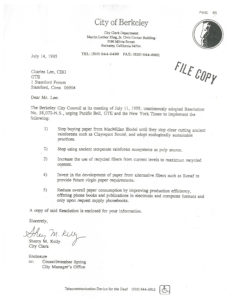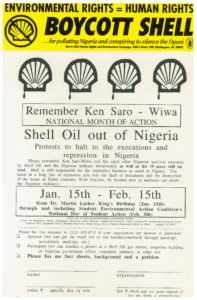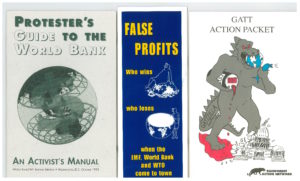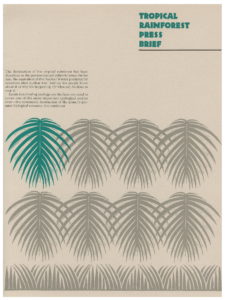Author: UC Berkeley Library
Research Round-Up

Staff in the Social Sciences Division conduct professional research as a way to contribute to the library profession and as a way to engage with library peers beyond Berkeley. Here is a round-up of some recent research output (articles, presentations, etc.) by our colleagues in the division.
Church, James and Josh Quan. 2018. “Patron Driven Data Acquisitions: Prizes, Perils, and Pitfalls.” Federal Reserve Bank of St. Louis. This presentation at the Federal Reserve Bank of St. Louis conference, “Beyond the Numbers: The Economic Data Ecosystem,” chronicles the successes, failures, and lessons learned from a patron driven data acquisitions program piloted by UC Berkeley Library.
Church, James, Susan Paterson, Amanda Wakaruk, and James R. Jacobs. 2018. “Endangered Government Information: Strategies to Protect Government Collections.” New Orleans, LA: American Library Association. This presentation at the American Library Association Annual Conference in New Orleans discussed methods and strategies on how to protect endangered government information in Canada and the United States.
Edwards, Susan, Chan Li, Celia Emmelhainz, Adam Clemons, Liladhar Pendse, and Natalia Estrada. 2018. “Collecting Globally, Connecting Locally: 21st Century Libraries.” P. 700 in Library Assessment Conference: Building Effective, Sustainable, Practical Assessment. Houston, TX. Presented at the ARL Library Assessment Conference, Houston, this research project used mixed methods to explore faculty beliefs about, and scholarly usage of, non-U.S./U.K. and non English language sources focusing on four departments with global research focus — Anthropology, History, Political Science and Sociology.
Emmelhainz, Celia and Marilyn R. Pukkila. 2018. “Being There at a Distance: Connecting the Academic Library to Students Who Study Abroad.” College & Research Libraries News 79(7):376. After meeting with study abroad students in orientation then surveying them after their programs, librarians found that while outreach results in limited additional usage of library resources, it significantly increases student awareness of library resources and feelings of being supported while conducting research on the other side of the world.
Glusker, Ann. 2019. “Collaboration and Innovation: NNLM’s Nationwide Online Wikipedia Edit-a-Thon.” This talk at the Online Northwest conference on libraries, technology, and culture, reports on the National Network of Libraries of Medicine’s (NNLM) ongoing Wikipedia edit-a-thon program, how the the unusual format worked, and tips for hosting an online edit-a-thon.
Glusker, Ann and Nina Exner. 2018. “Responding to Change: Reinventing Librarian Identities in the Age of Research Mandates.” Emerald Publishing Limited. This chapter outlines libraries’ (and librarians’) changing identities in the new world of research mandates from funders, institutions, and publishers.
Phillips, Margaret. 2019. “Readers and Authors of Educational Research: A Study of Research Output on K-12 Education Policy.” SAGE Open 9(2). Focusing on journal articles and reports in the field of education, this study examined the public availability of the publications, publication quality as determined by peer review, and authorship.
Schiraldi, Hilary. 2019. “Stepping Up Library Communications at UC Berkeley.” This poster, presented at the Academic Business Library Director’s Annual Meeting, describes the new Communications Department in the UC Berkeley Library and how it pulled together multiple library communications channels under one unit.
Singh, Monica and Celia Emmelhainz. 2019. “Listening to Unaffiliated Users of the Academic Library.” SAGE Open 9(2). In this study the authors interviewed 10 unaffiliated library users to better understand their perceptions of a large academic library and how the library fits into their daily habits.
New Resource for Digital Scholarship: Gale Digital Scholar Lab
Interested in computational text analysis, but don’t have coding experience? Or perhaps you’ve already written your own Python scripts, but you’re on the lookout for sources to build your text corpus. The Gale Digital Scholar Lab, new to the Library, offers solutions for digital humanities and digital scholarship researchers regardless of your level of technical expertise.
Create Visualizations and Run Computational Analyses in Your Web Browser
The Gale Digital Scholar Lab offers six analysis tools through which you can analyze Gale materials with just a few clicks:
- “Clustering” analyzes similar words across documents.
- “Named entity recognition” extracts proper and common nouns and groups them by types such as people, organizations, or dates.
- “Ngram” looks at the frequency of various terms or phrases.
- “Parts of speech tagger” considers how authors’ use of speech varies over time.
- “Sentiment analysis” tallies the positive or negative words in each document to produce a sentiment value.
- “Topic modeling” collects terms that frequently co-occur across a group of documents.
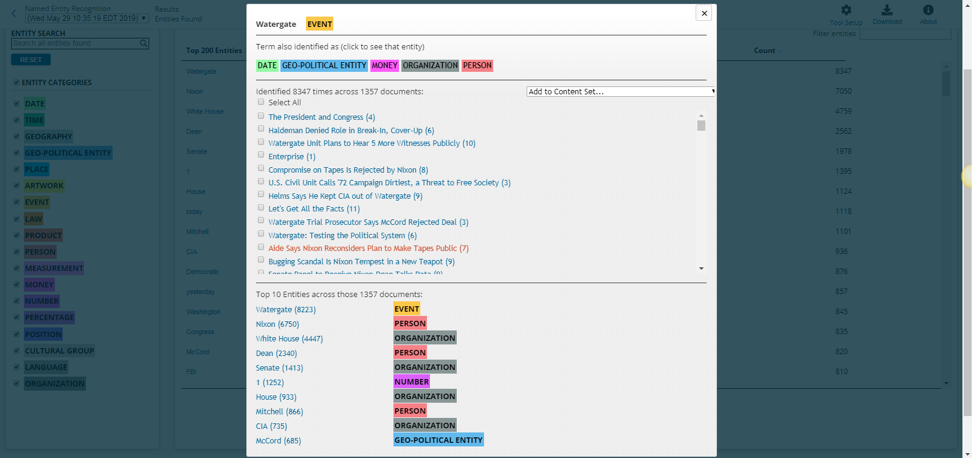
Download Plain-Text Files to Run Your Own Analyses
You can download up to 1000 documents at a time as plain-text files for your personal use. You can run your own analyses on this data and combine it with other text sources to build custom text corpora.
What Content Is Available?
The Gale Digital Scholar Lab includes 160 million pages of Gale Primary Sources content from the following primary source digital archives:
17th and 18th Century Burney Collection
American Civil Liberties Union Papers, 1912-1990
American Fiction
Archives Unbound
Archives of Sexuality & Gender
British Library Newspapers
The Economist Historical Archive
Eighteenth Century Collections Online
Indigenous Peoples: North America
The Making of Modern Law: Foreign Primary Sources
The Making of Modern Law: Foreign, Comparative, and International Law, 1600-1926
The Making of Modern Law: Legal Treatises, 1800-1926
The Making of Modern Law: Primary Sources
The Making of Modern Law: Trials, 1600-1926
The Making of the Modern World
Nineteenth Century Collections Online
Nineteenth Century U.S. Newspapers
Sabin Americana, 1500-1926
The Sunday Times Digital Archive
The Times Digital Archive
The Times Literary Supplement Historical Archive
U.S. Declassified Documents Online
Additional Features
- View scans of original documents side-by-side with OCR plain text
- Work iteratively with your content set to refine your results
- Easily clean your data right in the Gale Digital Scholar Lab interface and create custom text-cleaning templates
- Work with materials and tools in other languages
How to Get Started
- Visit the Gale Digital Scholar Lab
- Log in with your Google or Microsoft OneDrive credentials (a personal account is needed so you can create and save personalized datasets)
- Create your dataset by searching through the materials in the Lab.
- Run analyses on your dataset right in the web browser and get immediate results, or download your dataset to your computer to run your own scripts.
Getting Your Bearings Library Tours
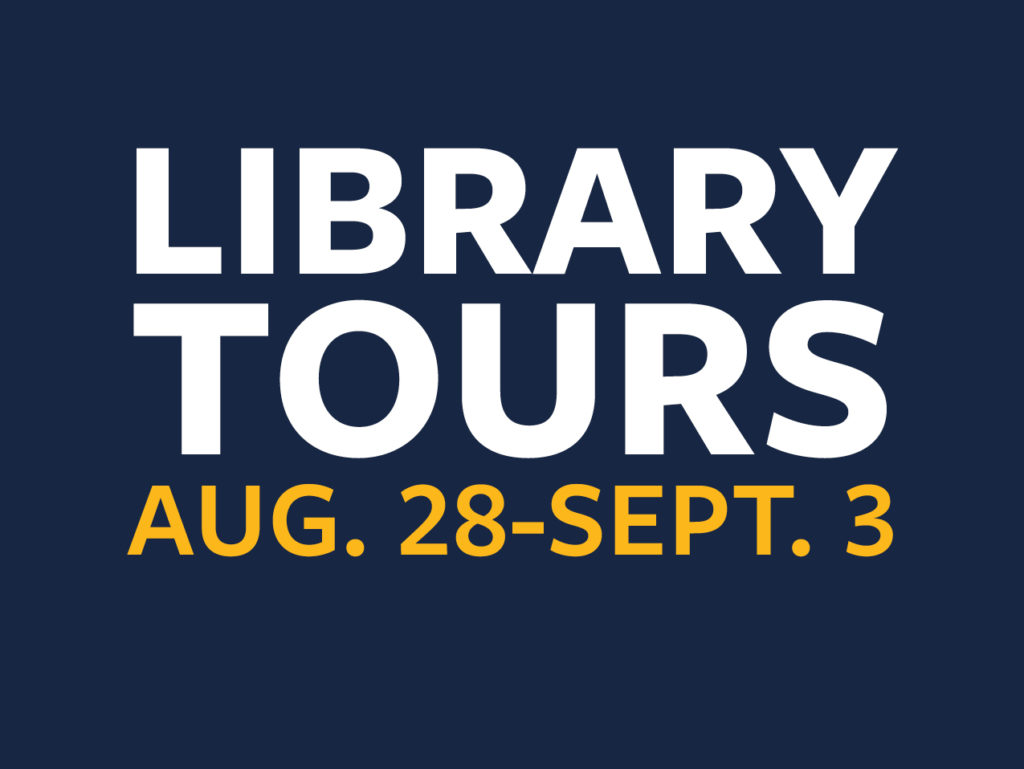
Join other students and get your bearings with a 3-in-one tour of the Doe Memorial Library, Moffitt Undergraduate Library, and the Main Stacks. See these central libraries and learn about the student services they provide.
When: Aug. 28-Sept. 3, 2019 every day (with exceptions) from 11 a.m.-12 p.m. and 2-3 p.m.
Where: Doe Library; tour starts at the north entrance
The Legacy of Toni Morrison
Toni Morrison, Nobel Laureate and giant of American letters, passed away yesterday, and her words will always be with us. Find her books at the Berkeley Libraries as well as scholarship on her oeuvre.
What books of Toni Morrison’s made an impression on you? Tell us on Twitter.
Additions to the Sierra Club Legal Defense Fund Records Now Open at The Bancroft Library
A two-year grant project funded by the National Historical Publications and Records Commission to make available a range of archival collections relating to environmental movements in the West has enabled The Bancroft Library to process additions to its already significant holdings of the Sierra Club Legal Defense Fund records.
The Sierra Club Legal Defense Fund was established in 1971 in San Francisco as a not-for-profit public interest group dedicated to litigating environmental battles for the Sierra Club and groups and individuals affiliated with the organization. The Fund works with community partners to fight for clean air and water and to protect wilderness and wildlife through litigating cases and preparing friend of the court (amicus curiae) briefs that provide information and expertise on numerous environmental issues. In 1997, the Sierra Club Legal Defense Fund changed its name to Earthjustice and the group continues to fight cases on environmental issues into the 21st century. The Earthjustice motto, “Because the Earth needs a good lawyer,” has been cited as one of the best non-profit taglines to clearly convey an organization’s solemn mission with emotion and humor.
The Sierra Club Legal Defense Fund records additions range from 1967 to 1995 and include environmental litigation cases from more than 30 states and the District of Columbia as well as amicus briefs for numerous cases, including some for the Supreme Court of the United States. A leading repository for the documentation of U.S. environmental movements, The Bancroft Library is home to the records of many significant environmental organizations and the papers of a range of environmental activists.
Changes to MLA Bibliography & LION Databases
If you use Literature Online (LION) or the MLA International Bibliography, you may have noticed some changes recently.
The MLA International Bibliography and the MLA Directory of Periodicals will now be found solely on the EBSCO platform. Although the interface looks different, the functionality has not changed. The Bibliography indexes journal articles and other critical scholarship in literature, languages, linguistics, and folklore.

Continue reading “Changes to MLA Bibliography & LION Databases”
The Power of Water: Friends of the River Foundation Records at The Bancroft Library
When we try to pick out anything by itself, we find it hitched to everything else in the Universe.
— John Muir (1838-1914) from My First Summer in the Sierra
On October 2, 1968, the Wild and Scenic Rivers Act was passed by Congress, creating a system of rivers throughout the country to be preserved for generations to come. For the environmental movement gaining momentum in the 1960s this was an important turning point for water protection – although the waterways deemed valuable enough to conserve did not include the Stanislaus River in Northern California, already slated for a large, new dam to be built by the Army Corp of Engineers. The impending filling of the reservoir would cause a 13 mile unimpeded stretch of the river to rise, bringing about the destruction and loss of numerous cultural resources and a highly accessible white water rafting area. Supporters of the dam argued that the New Melones Dam project would create construction jobs, increase the state’s water supply, help with flood control and generate hydroelectric power.
In 1973, a small group of individuals including Gerald “Jerry” H. Meral, Rob Caughlan, David Oke and David Kay decided to form a grassroots conservation organization called Friends of the River to gather signatures to put the Proposition 17 initiative on the ballot thereby adding the Stanislaus River to the list of protected rivers. Though the initiative was placed on the 1974 ballot in California and received significant support from river rafters, environmentalists and others who valued the river as it was, the initiative ended up failing in the election. This defeat didn’t suppress the spirit of the Friends of the River and the group was incorporated in 1975 as the Friends of the River Foundation, a non-profit membership based organization dedicated to river protection under the leadership of Mark Dubois and Jennifer Jennings.
By 1978, the New Melones Dam construction was completed and the spillway and powerhouse were in place in 1979. In May 1979, when the lake was about to be filled with water, Mark Dubois sent a four paragraph typed, signed letter to Colonel Donald M. O’Shei, the Army Corps of Engineers’ Sacramento District Engineer, warning of his impending action to attempt to halt the filling of the New Melones reservoir by hiding in the canyon and chaining himself to a rock in the river. This act of defiance by Dubois brought considerable attention to the already well publicized project and the filling of the lake was halted temporarily.
Though the New Melones reservoir was eventually filled in 1982, one of the campaign’s most influential achievements was to crack open the debate about the cost effectiveness and benefits to society of large dam projects around the globe. No other dams of this magnitude have been constructed in the United States since the completion of the New Melones Dam and the struggle to save the Stanislaus River from the construction of the New Melones Dam remains one of the greatest examples of citizen involvement in American history to stop a dam from being built. The Friends of the River Foundation continues to push for water protection legislation in California through grassroots organizing, public outreach and education.
The Friends of the River Foundation records are now open to researchers at The Bancroft Library. The processing of the Friends of the River Foundation records is part of a two-year grant project funded by the National Historical Publications and Records Commission to make available a range of archival collections relating to environmental movements in the West. A leading resource in the documentation of U.S. environmental movements, The Bancroft Library is home to the records of many significant environmental organizations and the papers of a range of environmental activists.
Additions to the Rainforest Action Network Records Now Open at The Bancroft Library
At first I thought I was fighting to save the rubber trees;
then I thought I was fighting to save the Amazon rainforest.
Now I realize I am fighting for humanity.
– Chico Mendes (1944-1988)
The Bancroft Library is pleased to announce that a series of additions to the ongoing Rainforest Action Network records is now open and accessible to researchers. The processing of the Rainforest Action Network records is part of a two-year grant project funded by the National Historical Publications and Records Commission to make available a range of archival collections relating to environmental movements in the West. A leading resource in the documentation of U.S. environmental movements, The Bancroft Library is home to the records of many significant environmental organizations and the papers of a range of environmental activists.
Rainforest Action Network was founded in 1985 by Randy “Hurricane” Hayes and Mike Roselle as a San Francisco based non-profit grassroots environmental group with a mission to protect and preserve the world’s forests and defend the human rights of indigenous people and others affected by unjust land grabs and the depletion of natural resources. Rainforest Action Network’s direct action, education and marketing campaigns apply pressure to governments and corporations to halt illegal logging, manufacturing, selling and use of old growth trees and tropical forests.
The global breadth of Rainforest Action Network’s activities range from Old Growth campaigns in Northern California, the Pacific Northwest and Canada to Tropical Timber campaigns to protect forests and indigenous rights in Central and South America, Africa, Tasmania and Southeast Asia. They also include the Global Finance campaign which organized and supported civil disobedience during the World Trade Organization meetings in Seattle, Washington in 1999.
The Bancroft Library has been collecting Rainforest Action Network records since 2006 and the newly opened additions document the group’s campaigns primarily in the 1990s-2000s. Future additions to the records are expected.
Library Prize Exhibit: Sympathy for the Loss of a Comrade
By Adam Clemons
In early July of 1873, a soldier named John Taylor reported to the hospital at Fort Stockton, Texas complaining of illness. The fort’s doctor, Peter J.A. Cleary, refused to treat him. Instead, he sent Taylor to the guard house as punishment. Three days later John Taylor was dead. Taylor’s fellow soldiers, incensed by what they believed to be racially motivated medical neglect by Cleary, drafted a statement detailing the patterns of abusive treatment of Taylor and calling for a formal investigation into his death. The officers at Fort Stockton responded by placing twenty-one of the soldiers who signed the letter, mostly non-commissioned officers, on trial for attempted mutiny. Though the charge was ultimately downgraded to a failure to follow proper procedure, twenty out of the twenty-one charged soldiers were dishonorably discharged and sent to prison in Huntsville, Texas.



Photos by Jami Smith for the UC Berkeley Library
In “Sympathy for the Loss of a Comrade: Black Citizenship and the 1873 Fort Stockton ‘Mutiny’,” Nick Eskow successfully reconstructed the events at Fort Stockton using library resources such as period publications, government documents, newspapers, and archival collections. Where others have relied on the accounts of the white officers to tell this story, Eskow sought out the perspective of the black soldiers through extensive research and analysis of the historical record. Eskow’s exceptional effort earned him the prestigious 2018 Charlene Conrad Liebau Library Prize for Undergraduate Research, an annual prize awarded to students who have done high-level, course-based research while demonstrating significant use of the Library’s resources.
Eskow’s research is also the subject of the rotating Library Prize Exhibit, located on the second floor of Doe Library between Heyns Reading Room and Reference Hall. Drawing on collections held at UC Berkeley, Fort Stockton, Texas, and the National Archives in Washington, D.C., the exhibit displays some of the documents Eskow used to capture the voice of the black soldiers including a digital version of the original petition letter, which includes a few pages of soldiers’ signatures to show the “X” marks by many names. These marks, meant to stand for “his mark,” indicates that many of the soldiers, who were former slaves, could not sign their names and implies that they could neither read nor write. Other documents on display include an 1868 copy of S.V. Benet’s A Treatise on Military Law and Practice of Courts-Martial, which was repeatedly cited by the white officers at Fort Stockton to support their charge against the black soldiers as well as a detailed timeline of the events at Fort Stockton from the death of John Taylor to the sentencing of the twenty soldiers who signed the petition letter.
The Charlene Conrad Liebau Library Prize for Undergraduate Research is awarded annually to UC Berkeley undergraduates. Any course-based research projects completed at UC Berkeley during the award year are eligible. In addition to a monetary prize for winners – $750 for lower division and $1000 for upper division – award recipients as well as honorable mentions will publish their research in eScholarship, the University of California’s open access publishing platform. Two of the winners are also be featured in an exhibit in the Library.
The exhibit – which was curated by Adam Clemons, Librarian for African and African American Studies, and designed by Aisha Hamilton, Exhibits and Environmental Graphics Coordinator – will be up until November 2019.
Berkeley Research Impact Initiative and the Social Sciences
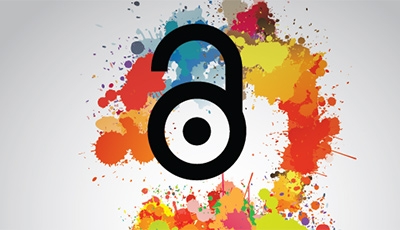 The Berkeley Research Impact Initiative (BRII) aims to foster broad public access to the work of Berkeley scholars by encouraging the Berkeley community to take advantage of open access (OA) publishing opportunities. To accomplish this, it provides funding to Berkeley authors to make their publications free to all readers immediately upon publication.
The Berkeley Research Impact Initiative (BRII) aims to foster broad public access to the work of Berkeley scholars by encouraging the Berkeley community to take advantage of open access (OA) publishing opportunities. To accomplish this, it provides funding to Berkeley authors to make their publications free to all readers immediately upon publication.
Making scholarly work available open access means that there is barrier-free access to research output and that it is not locked behind a paywall. This means there is potential for wider readership and greater impact. However, as publishers have increasingly been charging authors sometimes substantial amounts for “unlocking” their work and making it OA, many authors need financial assistance. With Berkeley’s commitment to making its scholarly outputs OA, the BRII program is the natural response to this situation.
Berkeley authors who have had an article accepted by an open access journal that charges authors an Article Processing Charge (APC) may apply to BRII for reimbursement. Similarly, authors of scholarly books may apply to BRII to for a book subvention. While many of the authors funded are in life and medical sciences or natural resources, a growing number of Berkeley authors in the social sciences have published open access using BRII funding.
If you have questions about the BRII program or open access, talk to your subject librarian.
Below is a very brief list of a few recent BRII-funded articles in the social sciences, listed by the department affiliation of the Berkeley author. Thanks to the assistance of BRII, these articles are free and openly available for any and all users.
Anthropology
Yurchak, Alexei. 2017. “The Canon and the Mushroom: Lenin, Sacredness, and Soviet Collapse.” HAU: Journal of Ethnographic Theory 7 (2): 165–98. https://doi.org/10.14318/hau7.2.021.
Archaeological Research Facility
Lightfoot, Kent G., and Sara L. Gonzalez. 2018. Metini Village: An Archaeological Study of Sustained Colonialism in Northern California.
Institute of Governmental Studies
Geography
Jadhav, Adam, Sharolyn Anderson, Michael J. B. Dyer, and Paul C. Sutton. 2017. “Revisiting Ecosystem Services: Assessment and Valuation as Starting Points for Environmental Politics.” Sustainability 9 (10): 1755. https://doi.org/10.3390/su9101755.
Haas School of Business
Wagner, Zachary, John Bosco Asiimwe, William H. Dow, and David I. Levine. 2019. “The Role of Price and Convenience in Use of Oral Rehydration Salts to Treat Child Diarrhea: A Cluster Randomized Trial in Uganda.” PLOS Medicine 16 (1): e1002734. https://doi.org/10.1371/journal.pmed.1002734.
Linguistics
Bakst, Sarah, and Keith Johnson. 2018. “Modeling the Effect of Palate Shape on the Articulatory-Acoustics Mapping.” The Journal of the Acoustical Society of America 144 (1): EL71–75. https://doi.org/10.1121/1.5048043.
Psychology
Diamond, Allison E., and Aaron J. Fisher. 2017. “Comparative Autonomic Responses to Diagnostic Interviewing between Individuals with GAD, MDD, SAD and Healthy Controls.” Frontiers in Human Neuroscience 10. https://doi.org/10.3389/fnhum.2016.00677.
Marcelle, Enitan T., Laura Nolting, Stephen P. Hinshaw, and Adrian Aguilera. 2019. “Effectiveness of a Multimodal Digital Psychotherapy Platform for Adult Depression: A Naturalistic Feasibility Study.” JMIR MHealth and UHealth 7 (1): e10948. https://doi.org/10.2196/10948.
Zieve, Garret G, Laura P Richardson, Katherine Katzman, Heather Spielvogle, Sandy Whitehouse, and Carolyn A McCarty. 2017. “Adolescents’ Perspectives on Personalized E-Feedback in the Context of Health Risk Behavior Screening for Primary Care: Qualitative Study.” Journal of Medical Internet Research 19 (7): e261. https://doi.org/10.2196/jmir.7474.
School of Information
Maillart, Thomas, Mingyi Zhao, Jens Grossklags, and John Chuang. 2017. “Given Enough Eyeballs, All Bugs Are Shallow? Revisiting Eric Raymond with Bug Bounty Programs.” Journal of Cybersecurity 3 (2): 81–90. https://doi.org/10.1093/cybsec/tyx008.
School of Social Welfare
Aguilera, Adrian, Emma Bruehlman-Senecal, Orianna Demasi, and Patricia Avila. 2017. “Automated Text Messaging as an Adjunct to Cognitive Behavioral Therapy for Depression: A Clinical Trial.” Journal of Medical Internet Research 19 (5): e148. https://doi.org/10.2196/jmir.6914.
Sociology
Boutyline, Andrei. 2017. “Improving the Measurement of Shared Cultural Schemas with Correlational Class Analysis: Theory and Method.” Sociological Science 4 (May): 353–93. https://doi.org/10.15195/v4.a15.
